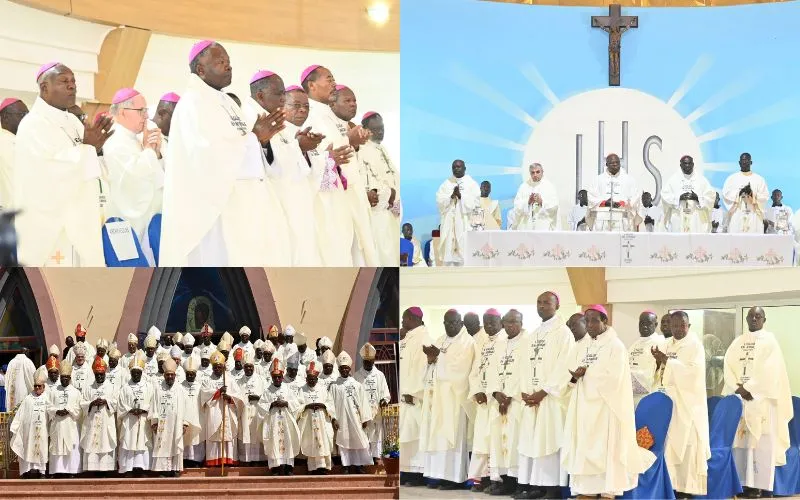“CEB has more than once expressed concerns about the political crisis in our country. It is still legitimate to ask questions: are the arrests and imprisonments the real needs of the people after the presidential elections?” Archbishop Houngbédji probes.
He further probes, “Is it not more urgent to act in order to provide the population with the minimum of life, security and peace?”
The Local Ordinary of Benin’s Cotonou Archdiocese emphasizes the need to “work for integral development in a peaceful nation that deserves special attention and requires us to take concrete and effective action for justice, reconciliation and peace.”
“That is why, in addition to this project, other initiatives are underway for a lasting peaceful solution to the current crisis,” the Archbishop added.
Regarding the implementation of the project, Archbishop Houngbédji explains that it has gone through various stages, the actions of which were previously examined by CEB members.
“I accompanied one of the actions in question, notably at the Camp Guézo hospital, while my brothers in the episcopate, Bishop François Gnonhossou of Dassa-Zoumè, Bishop Clet Fèliho of Kandi, Bishop Antoine Sabi Bio of Natitingou and Archbishop Pascal N'Koué of Parakou, welcomed and implored the Lord's blessing on the delegation of executives on their way to the target localities,” he said.
He notes that the next phases of the project include “the follow-up of the contact made with the beneficiaries during the visits to the localities in July. These are activities that require the whole Church to participate spiritually and to strengthen its human, financial and technical resources in the management of conflicts from a Christian perspective.”
The planning and implementation of such initiative, the Archbishop says, “requires greater support from those in charge of the project and from the political leaders and actors of good will whose generosity has enabled the first funds to be collected.”
“I sincerely hope that other Catholic leaders and believing political actors will participate in the next actions that will be initiated,” Archbishop Houngbédji says in the August 23 report.
He continues, “As for the other stages of the ongoing process, notably communication, conference-debates, discreet meetings between individuals, groups and political actors, I invite everyone to awaken the inner resources of goodness, brotherhood, mutual forgiveness and conversion so that each of us accepts to take one, two, three or more steps on the path of mutual listening, dialogue and reconciliation.”








